Research
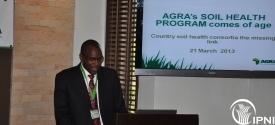 12 Sep 2013Africa Soil Health Consortia Project
12 Sep 2013Africa Soil Health Consortia ProjectThis project is working with the key stakeholders along the agricultural value chain in 8 Eastern and Southern Africa countries to promote consolidation and dissemination of ISFM information.Project countries include Kenya, Uganda, Tanzania, Rwanda, Ethiopia, Malawi, Mozambique, and Zambia.
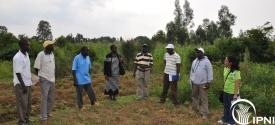 02 Mar 2012Questions about African agriculture and fertilizer use
02 Mar 2012Questions about African agriculture and fertilizer useQuestion 1. Can Africa feed itself? Agricultural production in sub-Saharan Africa is hampered by low use of inputs such as improved seeds and mineral fertilizers, low inherent soil fertility in much of the continent, and nutrient-depleted soils. Farmers have traditionally cleared land, grown a few crops, and then moved on to clear more land, leaving the land fallow to regain its fertility.
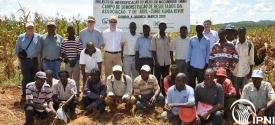 01 Mar 2012Maize Intensification in Mozambique (MIM) - An Industry Response to the Abuja Declaration on Fertilizer for an African Green Revolution
01 Mar 2012Maize Intensification in Mozambique (MIM) - An Industry Response to the Abuja Declaration on Fertilizer for an African Green RevolutionOur objective is to demonstrate the use and value of fertilizers and other ‘best agricultural practices’ (i.e. improved seed, crop protection and tillage system) to help Mozambican farmers move from subsistence to commercial farming.
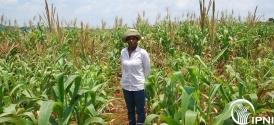 01 Mar 2012Coordinated Maize Research Program
01 Mar 2012Coordinated Maize Research ProgramFood insecurity in sub-Saharan Africa (SSA) results from low crop productivity linked to low fertilizer use and multiple soil nutrient deficiencies.
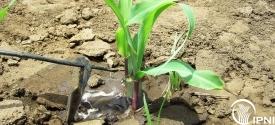 01 Mar 2012Enhancing water use efficiency in smallholder irrigation systems under water and nutrient limited conditions
01 Mar 2012Enhancing water use efficiency in smallholder irrigation systems under water and nutrient limited conditionsIPNI is collaborating with the International Atomic Energy Agency in a project to develop best management practices for water and nutrients in the production of maize in southern Malawi using both conventional and isotopic techniques.
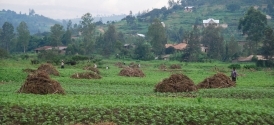 Integrated Soil Fertility Management
Integrated Soil Fertility ManagementIntegrated Soil Fertility Management (ISFM) is a fundamental concept to improve crop productivity in smallholder farming systems in a sustainable manner. ISFM encompasses the use of improve crop varieties and application of mineral fertilizer in combination with various organic resources.
Exploring impact of soil type and resource management on village-scale soil organic matter gradients
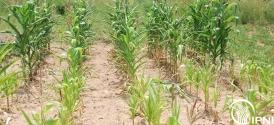 12 Jan 2011Diagnosis of Soil Health Problems in Smallholder Cropping Systems
12 Jan 2011Diagnosis of Soil Health Problems in Smallholder Cropping SystemsIPNI is joining efforts with the Africa Soil Information Services Project led by the Tropical soil biology and Fertility Institute of CIAT (TSBF-CIAT) to diagnose soil health problems and develop site specific nutrient management recommendation for cropping systems in Africa
